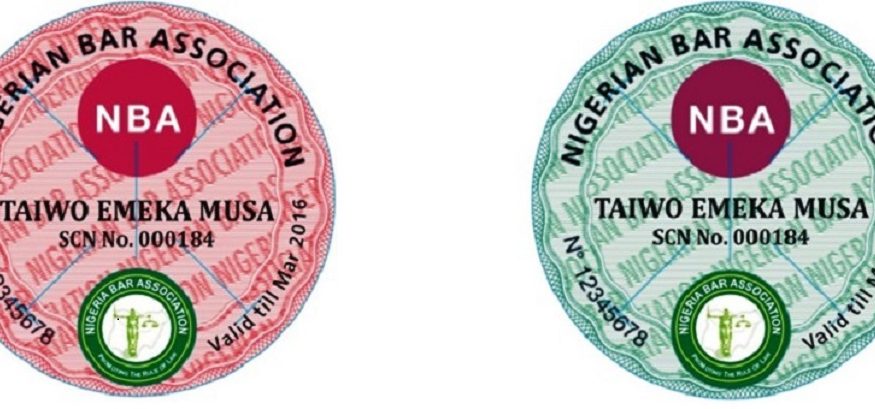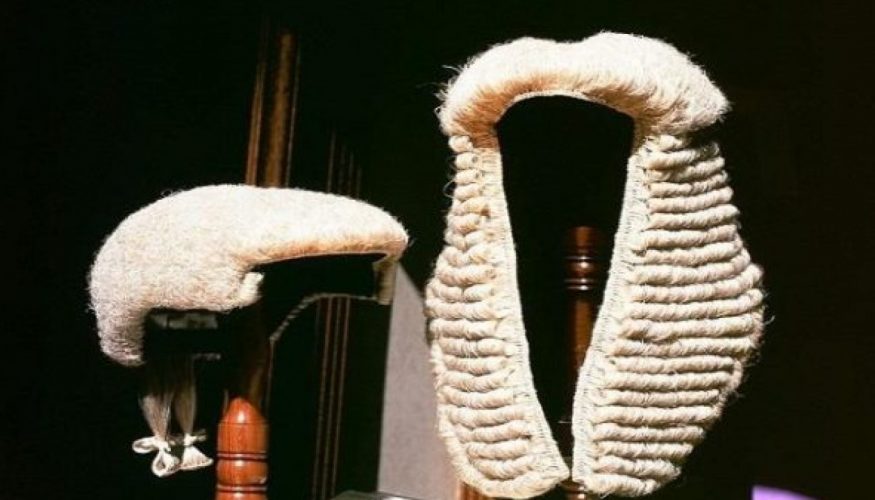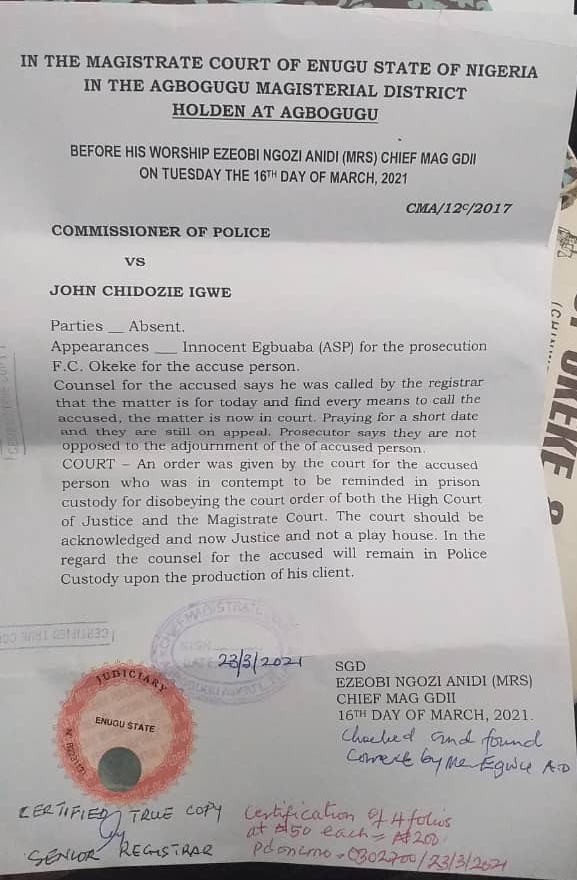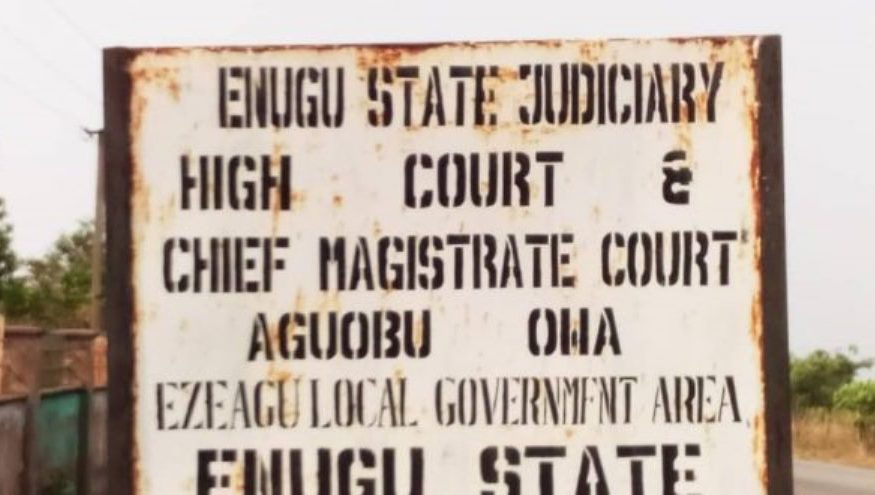NBA DISOWNS ‘LAWYER’ OVER FAKE STAMP, VOWS PROSECUTION
The Nigerian Bar Association (NBA) has said that it never issued any stamp to one Aroyewun Adeleke Sulaimon.
Noting that the suspected fake stamp bearing the name of one Mr. Aroyewun Adeleke Sulaimon embossed on a title document is “in breach of the extant laws regulating the practice of law in Nigeria,” the NBA stated that “Preliminary investigations reveal that the stamp affixed to the title document was not issued by the Nigerian Bar Association (NBA), neither has the NBA issued any stamp to any Mr. Aroyewun Adeleke Sulaimon.”
Below is the full text of the statement signed by NBA Publicity Secretary, Dr. Rapulu Nduka.
USE OF FAKE NBA STAMPS IN THE NAME OF ONE MR. AROYEWUN ADELEKE SULAIMON: A DISCLAIMER
The attention of the leadership of the Nigerian Bar Association (“NBA”) has been drawn to a suspected fake stamp bearing the name of one Mr. Aroyewun Adeleke Sulaimon embossed on a title document in breach of the extant laws regulating the practice of law in Nigeria.
Preliminary investigations reveal that the stamp affixed to the title document was not issued by the Nigerian Bar Association (NBA), neither has the NBA issued any stamp to any Mr. Aroyewun Adeleke Sulaimon.
Consequently, the NBA will make a formal report to the Nigerian Police, in order to unravel the individuals behind these offending acts and to bring them to book.
The NBA reiterates that it will continue to take every step to ensure that the Legal Profession is not brought to disrepute, and will take appropriate steps to close in on fake lawyers and those who produce and/or make use of fake NBA Stamps.
The NBA also appeals to all lawyers to kindly bring to its attention any such infraction(s) in order for the appropriate steps to be taken.
Dr. Rapulu Nduka
Publicity Secretary,
Nigerian Bar Association
To join our Telegram platform, please click here
Copyright 2022 CITY LAWYER. Please send emails to citylawyermag@gmail.com. Join us on Facebook at https://web.facebook.com/City-Lawyer-Magazine-434937936684320 and on TWITTER at https://twitter.com/CityLawyerMag. To ADVERTISE in CITY LAWYER, please email citylawyermag@gmail.com or call 08138380083. All materials available on this Website are protected by copyright, trade mark and other proprietary and intellectual property laws. You may not use any of our intellectual property rights without our express written consent or attribution to www.citylawyermag.com. However, you are permitted to print or save to your individual PC, tablet or storage extracts from this Website for your own personal non-commercial use.


 Copyright 2020
Copyright 2020 